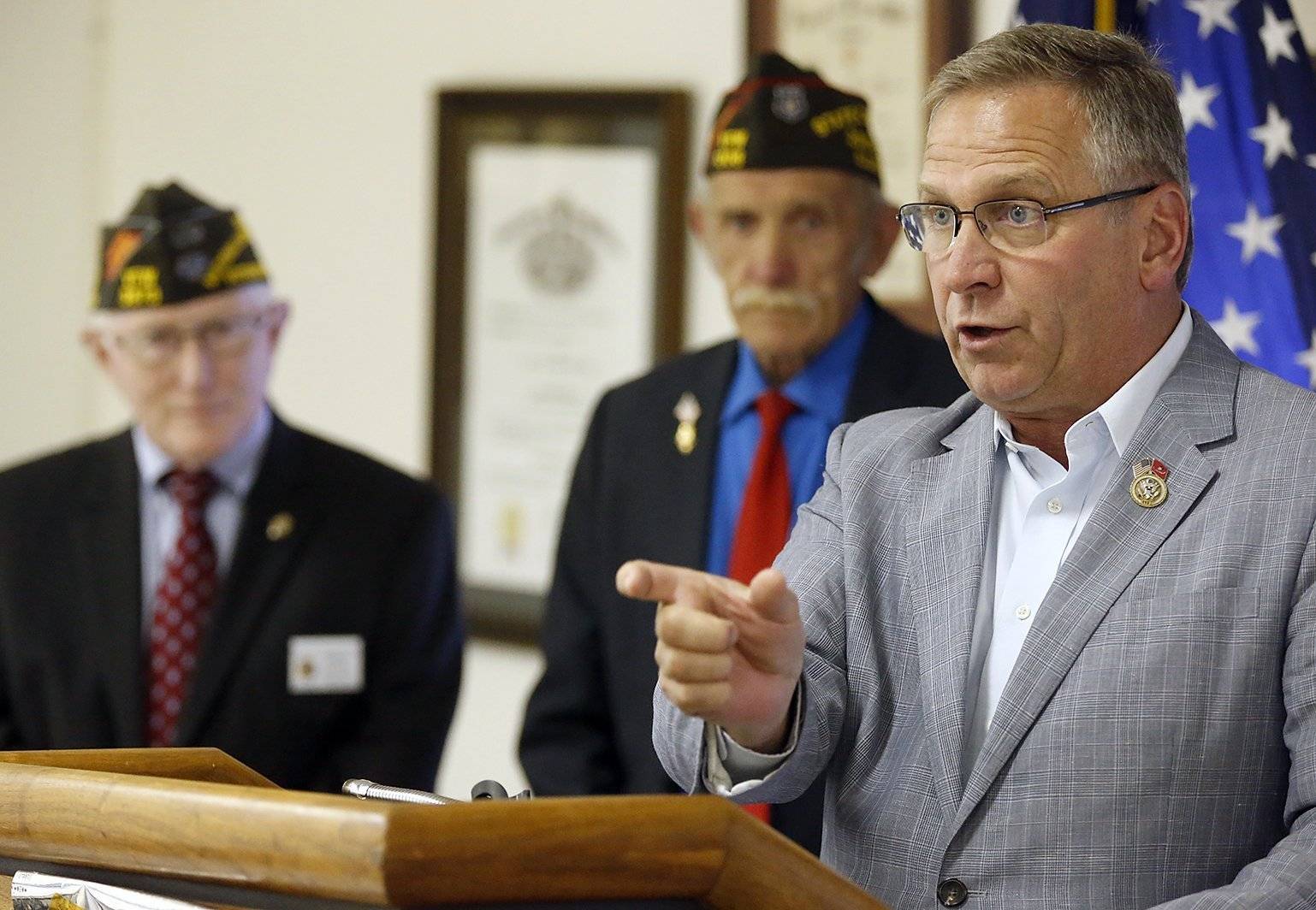

More than two years into the Biden administration, the Department of Veterans Affairs and the largest federal employee union appear no closer to an agreement on a...
More than two years into the Biden administration, the Department of Veterans Affairs and the largest federal employee union appear no closer to an agreement on a new labor contract.
The VA and the American Federation of Government Employees have gone back to the negotiating table over the course of several administrations, but have yet to reach a deal to replace the current labor contract, which is more than a decade old.
A federal arbitrator recently ruled in favor of AFGE, which had filed a national grievance claiming VA negotiators had been “failing to bargain in good faith with the union.”
In a March 9 ruling, an arbitrator found the VA violated ground rules established by both parties when it repeatedly attempted to negotiate over items outside the scope of a “limited reopener” of contract talks.
The arbitrator, Felice Busto, ordered the VA to withdraw several of its proposals, including one that would have had AFGE terminate local supplement agreements (LSAs), which cover issues ranging from parking, telework and hours of work.
“Although the agency had the right to negotiate regarding the procedures for LSAs it did not have the right to unilaterally insist that all such agreements expired,” Busto wrote. “It is well settled that while a party may seek to renegotiate the terms of an agreement it cannot insist that provisions of the agreement are ‘expired’ or ‘no longer enforceable.’”
Attorney Ibidun Roberts, who represents the AFGE’s National VA Council, said VA negotiators made several “take it or leave it” proposals and didn’t offer counterproposals to what the union was seeking during several rounds of negotiations last year.
“They would say to us — almost 50 times in a day — that they disagreed with us. They disagreed with our interests, but then they wouldn’t propose anything to try to come to an agreement,” Roberts said. “We’re required to come to the table with a sincere resolve to reach an agreement. And if all you say is, ‘We disagree,’ and you never want to try to meet each other’s interests, you’re not going to get to an agreement.”
Roberts said the VA proposed AFGE waive its right to collectively bargain on performance awards and employee discipline, without offering anything in return at the negotiating table.
“In the federal sector, if you want to change current language, you have to have a really good reason to do so. There’s a higher burden if you want to change what’s in the current language,” she said. “But VA came to the table and had no reason for the change, and would offer things like, ‘Give me your arm or give me your leg.’”
VA Secretary Denis McDonough told reporters earlier this month that “good faith bargaining” with AFGE on a new master agreement was progressing, and that “tentative agreements on language are reached at every bargaining session.”
“We look forward to deepening our partnership with our labor partners,” McDonough said.
VA Press Secretary Terrence Hayes said both AFGE and VA are back in negotiations this week.
Busto in her ruling found the VA ignored a November 2020 ruling from the Federal Labor Relations Authority (FLRA), which determined the agency still has to provide Performance Improvement Plans (PIPs) to employees facing disciplinary action — even under the 2017 VA Accountability Act and Whistleblower Protection Act, which gives VA more discretion to fire, demote or suspend employees covered under the law, based on misconduct or performance issues.
Roberts said VA negotiators also proposed AFGE waive its right to bargain for performance awards for Title 38 “hybrid” employees.
“Our employees have had rights for years, decades almost. And this department came in to take those things away,” she said.
Title 38 hybrid employees are treated as medical personnel under Title 38 in matters of appointment, advancement and pay issues. However, they fall under Title 5, like much of the federal workforce, when it comes to issues that include performance appraisal, leave, hours of duty and adverse actions.
Under the Biden administration, the VA and AFGE reached a global settlement agreement in June 2021 that would restart labor contract talks that had stalled under the Trump administration.
In an effort to restart bargaining on a new contract. VA and AFGE agreed they would both submit up to six articles of the contract to renegotiate.
Per the agreement, VA and AFGE could select articles of the contract that were still in dispute between both parties.
AFGE and VA went through several sessions of bargaining talks, starting in March 2022, before the union filed a national grievance.
“Part of what we’ve been dealing with [are] things that shouldn’t be in dispute. We’re disputing and not actually getting to the heart of what the negotiations need to be,” Roberts said.
The arbitrator ordered the VA to “cease and desist” from additional violations of federal labor relations law and return to the bargaining table to negotiate in good faith.
Busto also ordered VA Secretary Denis McDonough to sign a written notice acknowledging the VA’s “unfair labor practices” and provide a copy to all 291,000 AFGE bargaining unit employees.
“Our hope is that VA will do better, that they will go back and look at those proposals and withdraw those improper proposals, like the ones asking us to waive our rights. Unfortunately, so far, we aren’t seeing it,” Roberts said.
Other national grievances filed by AFGE remain pending before the Federal Mediation and Conciliation Service.
“We will be prepared to pursue those grievances as well to gain appropriate conduct from the VA during these negotiations,” Roberts said.
AFGE is challenging VA’s proposal to introduce a “zipper clause” that would prevent future negotiations on official time. A zipper clause limits mid-term bargaining over the course of a labor contract.
The U.S. Court of Appeals for the D.C. Circuit in January 2022 overturned the FLRA’s decision in September 2020 that made zipper clauses mandatory bargaining subjects that agencies could bring to the Federal Service Impasses Panel (FSIP) to resolve.
AFGE is also challenging the VA’s refusal to provide more information on the PIPs it has issued, in order for the union to determine whether they are an effective tool for addressing employee performance issues.
“If employees are passing performance improvement plans, then that means they work, and we would not find it valid that the VA wants to get rid of them,” Roberts said.
Copyright © 2025 Federal News Network. All rights reserved. This website is not intended for users located within the European Economic Area.
Jory Heckman is a reporter at Federal News Network covering U.S. Postal Service, IRS, big data and technology issues.
Follow @jheckmanWFED




